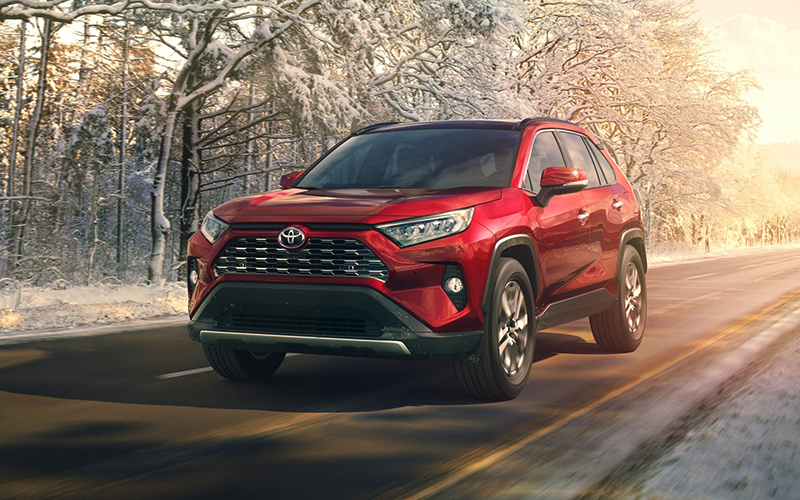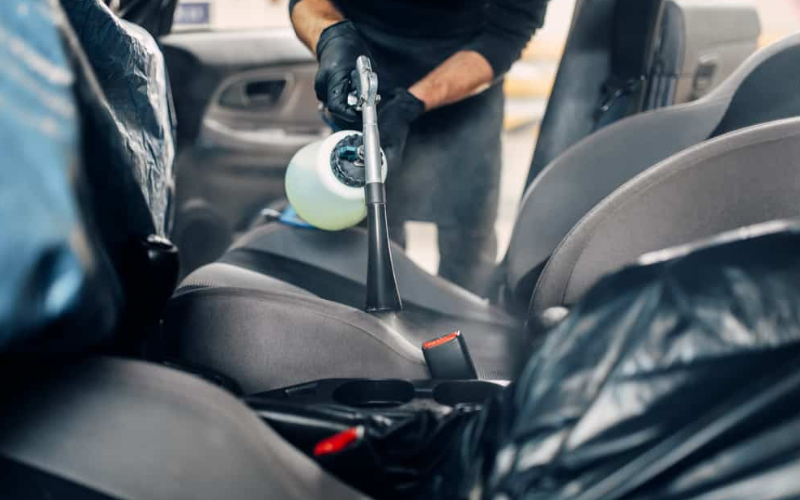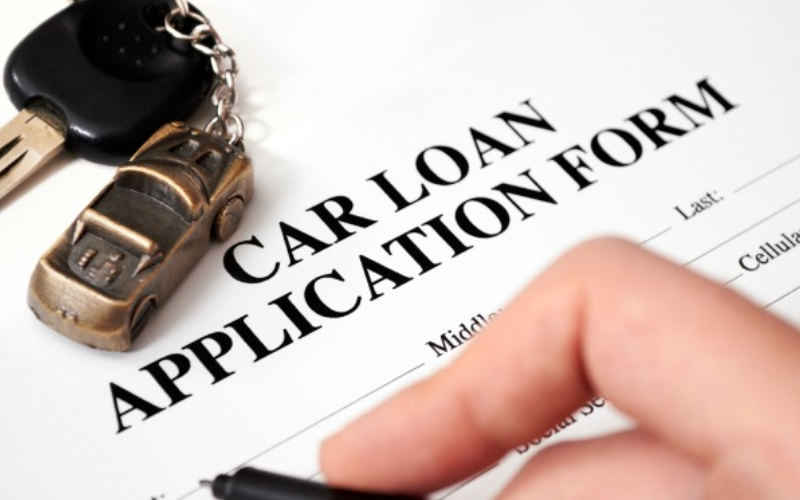Have you ever heard the phrase “a buyer’s market”? It’s most often used with the real-estate market, but in the modern age it equally applies to the automotive market as well. This is a time of abundance and choice; a golden age of car buying where truly buyer has never had it better.
The problem is, that while choice has brought many benefits like improving technology, lower prices and a great chance for drivers to get exactly what they need, there are also some pretty big drawbacks. One big problem is that it’s hard to know which car brands are the ones to trust, and which are ones from which we should distance ourselves somewhat.
In today’s piece (Part 1 of 2) we are going to share with you the most reliable car brands out there. All the brands that made it into today’s list have proved that they are dependable according to the following criteria:
- Durable, quality materials that stand up well to wear and tear
- Unlikely to experience fundamental problems within warranty period
- Unlikely to break down when used under normal recommended conditions
- Will fulfil promises they make in their advertising material
List Overview:
As you progress through the “Most Reliable” list, you may notice a certain geographical theme running through much of the Top 10, but that will simply serve as a testament to that region’s focus on precision engineering and getting the automotive fundamentals right before moving on to improving the frills. In total, the list consists of 15 brands, which we have compiled using combined data from Consumer Reports and RepairPal in 2020, as well as a dash of our own know-how.
15. Jeep
An iconic American SUV brand and one of the best-selling ever 4×4 brands across the world. In markets where gas was cheap and plentiful, the Jeep was a great choice. Models like the Grand Cherokee offered luxury, power and utility all in one. In other places, its poor gas-mileage made it unpopular, especially in countries like the UK where the 14mpg fuel consumption proved a bit rich for many drivers (especially when gas reached well over five dollars a gallon.
American brands haven’t always enjoyed the best comparison ratings in reliability compared to their German and Japanese counterparts. Over the years, however Jeep have clawed back a lot of credibility thanks to impressive tech developments like their Selec-Terrain and Quadra-Trac 4WD and AWD systems. Off-roading and adventure vehicles like the Wrangler also served to add that more reliable, strong and dynamic edge to Jeep’s previously more limited range.
14. Subaru
Subaru may have previously been higher up in this list, but is now meeting stiffer competition from other brands in 2020. Still, Consumer Reports rank Subaru in their top 5 for overall ratings, which includes reliability as a factor. In any event, two words are the real key to the reliability and overall attractiveness of the Subaru — Boxer Engine.
In fact, it’s not only the engine itself, but rather what it represents: equilibrium. For decades now, Subaru have set themselves apart with their uniquely designed engines that are exceptionally balanced compared to many other models. Perhaps those others were just trying to push up horsepower and torque, or add fancy frills to the exterior and interior design. Meanwhile, Subaru was developing their Boxer Engine and other systems like the Symmetrical All Wheel Drive System.
So why isn’t Subaru riding high in our list? They did suffer a major setback in 2020 when 188,000 vehicles were recalled over engine stalling risks. The problem occurred in the company’s Ascent, Impreza, Legacy and Outback models — all top sellers. You can’t have a mistake like that and stay in the reliability top 10, but Subaru overall remain a name to trust.
13. Volkswagen
One of the most recognizable marques in the world, VW always seems to be riding high in the market. Indeed, they have earned a strong reputation for reliability and affordability, bringing the “prestige” sedan look to those who perhaps couldn’t afford to splash out on an Audi A4 or A8. They’re also known for their prowess in compact cars like the Polo and Golf, the latter in particular known for its sporty looks and dynamic GTI engine power.
The German giant’s place in our list is well deserved, but perhaps lower than you’d expect for such a well-known brand. Like their Japanese counterpart, Subaru, VW have been rocked somewhat by scandal in the past few years, most notably the emissions scandal which emerged within their diesel cars — Dieselgate/Emissionsgate — claiming to achieve lower emissions but in fact being programmed to cheat the emissions tests.
In reality, the emissions problem isn’t heavily connected to overall reliability, and you can, on the whole, still rely on your VW not to break down. In the past couple of years, however, an issue with their 4- and 5-cylinder engines has left some drivers of the Jetta, Passat and some other models at risk of powertrain problems. In our view, this wobble on VW’s part is most likely due to the company adjusting to the new reality of more intense competition and pressure to deliver faster. As the company restructures and regroups after problems in the last few years, we expect they will once again climb the ranks. They just need time to adapt.
12. Tesla
Tesla is the real “fighter” in the group, having performed poorly in Consumer Reports rankings when they started in earnest back in 2018. In 2020, they have climbed many spots in recognition of their work to improve the reliability of their flagship Model 3 and Model S all-electric sedans.
Having been recommended by Consumer Reports in the very beginning, the Model 3, for example, suffered major setbacks when CR recanted their recommendation based on survey data of 470,000 vehicles that were showing problems in paint, trim and electronics. As an electric car, the electronics are a pretty fundamental component to its reliability. A further issue has persisted even as the company works to improve on these things, and that’s the autonomous driving feature. After numerous reports of accidents and other problems showed that the self-driving technology is far from viable, Tesla has suffered in overall reliability rankings.
Having said all of that, in 2020 Tesla is addressing reliability issues seriously, as well as other issues like production capacity and long wait times for new buyers. When you factor in the class-leading EV technology that Tesla holds, with the promise of greater value models in future thanks to cheaper battery technology they are developing, you end up with a brand delivering on its promise of a trustworthy EV brand.
11. Chrysler
Some may wonder about Chrysler being in a list of most reliable cars. It’s true that like many American brands they have suffered somewhat at the hands of German and Japanese competition. In more recent times, though, Chrysler has shown pluck and adaptability, releasing some truly impressive and class-leading vehicles to the marketplace.
One area that has helped Chrysler improve its standing is in the minivan class. Vehicles like the Chrysler Pacifica have done wonders to rejuvenate the brand, with many pleasantly surprised to find that the Pacifica was able to beat out many well-established minivan brands, including Toyota and Ford.
Data from RepairPal showed that that relatively low repair costs averaging just $608, and only a 12 percent chance of any necessary repairs being severe ones have helped gain it a solid 3.5 stars out of 5. RepairPal report that the Chrysler only needs to visit the shop 0.3 times per year for unscheduled repairs. That hardly fits with the old image of Chryslers that practically lived in the shop. A solid performance earns them a spot on the cusp of top-10 greatness.
10. BMW
BMW earns a spot in our list chiefly because of their strong overall rankings with Consumer Reports (8th in 2020). RepairPal is somewhat less generous, awarding just 2.5 stars out of 5, declaring BMW to be somewhat “average” when it comes to reliability. In our view, BMW does deserve a place at in the reliable list because a lot of problems in BMW stem from the relative high cost and frequency of repair when compared to many other vehicles.
In the majority of BMWs, problems are few and far between. The company’s focus on quality components and a strong, solid chassis and frame make it as dependable as any high-end car you’ll find. Some problems have occurred over the years, however, within BMW’s turbocharged models.
9. Nissan
Nissan seem to have a car for every occasion. Their range of compact cars, sedans, SUVs and the highly popular EV, the Nissan Leaf, is enough to make it a consistently strong seller and sought-after brand.
The other key to Nissan’s success is the reliability factor. Low-cost and infrequent repairs make it a very reliable 4-star rated car according to RepairPal. While Nissan never seems to be able to quite topple fellow Japanese rival Toyota from their spot in the list, they are consistent enough to challenge them in the coming years. One area that Nissan is already managing to succeed over Toyota is in the realm of trucks. Nissan’s Titan, for example, has in general outscored and outperformed Toyota’s equivalent Tundra by a pleasing margin.
Your typical Nissan should last you an impressive 200,000 miles, or more than 10 years. When you add in the fact that Nissan cars are relatively inexpensive to purchase, insure and maintain, you are essentially buying into a decade-long bargain that keeps on giving.
8. Toyota
While Toyota has long maintained a veneer of extraordinary reliability, they didn’t quite make the top 5 in our own estimation. Notable models for reliability include the Toyota Sienna minivan, the Tacoma and the Prius. The latter two have been awarded “Most Dependable” by JD Power and Associates in 2019.
Toyota has a larger overall range than Nissan, and with all of them performing generally well, this helps put Toyota over the top for reliability. Whether or not they can maintain that momentum as Nissan works to catch up is impossible to predict with certainty. Toyota has experienced serious recalls before, sometimes numbering in the millions for things like sticking gas pedals, pedals getting stuck and glitches in their on-board software.
Much of that is in the past, however, and Toyota will most-likely continue to retain its top-10 position, very likely moving into the top 5 in the near future. One advantage the company has is the patience to stick with an engine design and perfect it over the long term. Others employ more radical strategies which sometimes score hits for improvement, but create new problems as they roll out.
7. Lexus
OK, we understand that technically a Lexus is basically a Toyota since it’s the luxury brand wing of that company. Having said that, this brand is still quite distinct in its design and overall feel, with many buyers still not being aware of the company’s link. All the same, it’s logical that the two brands would appear close together in any list since what happens to one would easily affect the other.
In terms of design, the Lexus brand is without doubt amore sumptuous, decadent and luxurious than its more functional Toyota sibling. That’s how the entire concept was created. Back in 1989, Toyota envisioned that loyal customers who bought Toyotas for years might appreciate the chance to move “upward” while still sticking with the Toyota company. Thus, Lexus was created as an “aspirational brand” attached to the parent company.
In terms of reliability, it’s hard to fault them. Despite their luxurious detailing, the Lexus average repairs only come to around $551 according to RepairPal. Furthermore, there’s only an 8 percent chance that any repairs will be severe, which is 4 percent below the average. One issue, however, is that those repairs can add up more quickly than some brands because according to the same RepairPal data, a Lexus requires a visit to the shop 0.5 times per year.
6. Mitsubishi
Now we are getting close to our top 5. Mitsubishi just missed out on a place within that zone, but still gets a well-earned placement at number 6. First of all, Mitsubishi cars are around the same as a Lexus when it comes to repairs — around $535 per year — but its major advantage is the extreme low frequency that shop visits are needed at just 0.2 times per year.
One reason for their top placement this time is how much effort they have made to improve after a low point in 2016 when they were awarded Japan’s worst automaker by consumer reports with a dismal score of 51 out of 100. Many issues seem to come engine, clutch and brake problems.
Now, however, with great buzz about upcoming models like the 2021 Outlander, which seems to be bigger, bolder and with improved engine performance according to limited information from the company so far. Since that low point in 2016, consumers are certainly showing approval for Mitsubishi’s improved cars, in particular the Outlander Sport.
As the company cuts back on expensive R&D to focus on a smaller selection like their new 2021 Outlander, perhaps we will see continued improvement in quality and reliability. Mitsubishi might make it into the top 5 next year. At least for now, their RepairPal ratings are helping them achieve greatly in our list.
5. Mazda
Like Mitsubishi, Mazda is also locked in a battle to improve its reliability standing after some setbacks with models in previous years. Reports in 2020 are showing positive yields for those efforts, with Mazda finishing 4th overall in the Consumer Reports rankings.
Key to their steady rise in reliability are major improvements to their SkyActiv engines, especially the SkyActiv-G engine which now is getting more airflow in the delightful Miata MX-5 model to boost performance. The 2019 Mazda3 also received a new SkyActiv 2.0L engine that boosted torque by as much as 30 percent.
Step by step, therefore, Mazda climbs its way to the top of the ladder, recovering a previously suffering reputation with a new line of SUVs, sedans and roadsters that are as affordable and reliable as they are aesthetically pleasing and mechanically brilliant.
4. Hyundai
The first Korean entry on the list, and it’s made it to the top 5. Hyundai have had a great couple of years, achieving 7th in the Consumer Reports overall ranking and 4th in those listed by RepairPal. Affordable and infrequent repairs and a relatively low chance of anything serious going wrong are helping this Korean brand and their eclectic range of compact sedans, crossovers and SUVs to find their place in a crowded market.
Hyundai has also broken into the EV market, and is generating a lot of buzz around its new models like the 2021 Hyundai Kona EV. As range and quality improve, buyers are turning to these affordable Korean models. Recent performance of their Elantra, Sonata and Tucson models in particular is proving jarring to Japanese rival Honda, who while still strong suffered low-rating setbacks in some of their other models when compared to equivalent Hyundai cars.
3. Kia
Another Korean offering is the Kia, which was initially known for more affordable compact cars but has since grown to offer crossovers like Kia Sportage, and larger SUVs such as the Kia Telluride. With Consumer Reports they reached an overall score of 74, placing them 9th behind BMW, but when you factor in the low annual repair costs of $474 and shop-visit frequency of 0.22 times per year on RepairPal, Kia starts to look like a better choice for reliability alone.
Kia has been steadily nurturing their reputation for reliability, with one big landmark victory being made in 2017 when the UK’s “Telegraph” newspaper placed them 3rd out of 20 for reliability, scoring just 80 problems per 100 vehicles. The company continue to show confidence in their reliability, offering 5-year/60,000-mile warranties on key components, or 10-year/100,000-mile warranties on others. That’s not a decision they’d take lightly.
2. Porsche
Something of an outlier in the leading brands, not being from either South Korea or Japan. Still, it’s hardly surprising that the German luxury auto giant has made it this high in the list. They have taken the number 1 spot in Consumer Reports with an impressive aggregate score of 86 — 2 points ahead of nearest rival, Genesis.
Porsche has continually garnered further support from J.D. Power, who declared in 2019 that it is “one of the most reliable, dependable cars” on the road today. Their one drag factor is the relative cost of repairs, with average annual costs at $1,192 and frequency of visits up at 0.84 per year. For many other brands, this may have sounded a death knell in terms of reliability but Porsche has other factors in its favor.
First, regarding the cost of repairs. As a high-end (and high-price) car, it seems unfair to punish the brand for expensive repairs. These are inevitable, and much more likely to be easily shouldered by the typical Porsche owner. It’s not the same problem as a more typical car in the $30,000-50,000 range that ends up costing a further $1,000 a year to maintain. That would be a bigger hit to buyers of that car type.
Secondly, Porsche has the heritage factor. While new models have emerged over the years, certain classic elements have remained constant, allowing the company to achieve quality levels that other brands can only dream of. The premium nature of the components and build materials also make this brand well deserving of its near top spot.
1. Honda
When you factor everything in, it’s hard to be surprised at Honda topping the list. One British reviewer summed it up nicely when they wrote, “In fact, Honda’s most unreliable cars are probably still some of the most reliable cars out there.”
Starting with their RepairPal rating, which is extremely important for a mass-produced and mass-marketed brand preaching affordability and reliability all in one. The typical Honda costs just $428 annually in repairs — $224 below average — and requires attention at the shop just 0.3 times per year, with only 10 percent of problems being serious ones.
Honda came 15th in the Consumer Reports rankings, but still gained an overall score of 72, with 77 in their road test and 8 of 11 submitted models tested receiving official CR recommendations. That’s an impressive record for a high-volume company. The brand deserves this top spot, we feel, because of their attention to quality in engines, suspension, braking and ADAS features, all of which are dependable, yes, but also without any buyer having to break the bank to attain it. This is the real key to Honda’s success; they have assured mass-production and reliability go hand in hand.
Look out for Part 2
In our next list, we will visit the least-reliable car brands out there, perhaps helping you dodge some bullets when considering your next purchase. In the end, however, some aspects of reliability do depend on your own driving habits. Many cars that some critics deem unreliable or of poor quality actually stand up quite well to the limited scope of everyday driving that some people put them through. More in our next piece!



